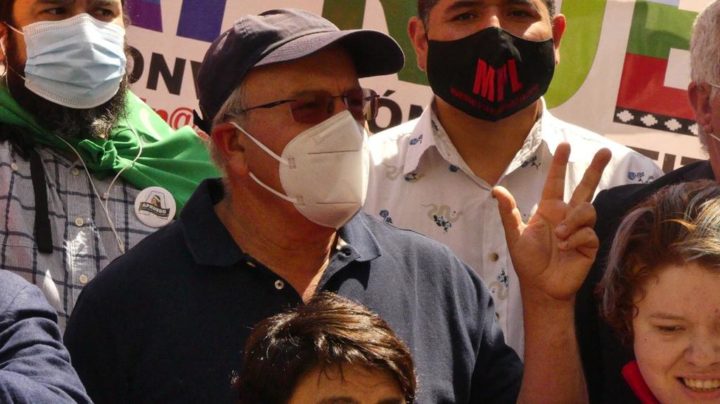According to the analysis made by the Chilean humanist deputy, Tomás Hirsch, of the results of the plebiscite held on October 25 that leads the Latin American country to a constituent process.
In this interview, Hirsch reviews the participation data, the meaning of the vote, the true origin of the plebiscite, and the need for citizens to continue to be organized and mobilized in a nonviolent way to achieve a constitution that is born from the social base and is for everyone.
Tomás Hirsch, deputy for Humanist Action, has highlighted in this interview the high participation of the population with support for the APPROVAL of a new constitution of 77%, reaching over 90% in some areas.
“The plebiscite is a consequence of the mobilizations that began on October 18, 2019”
Hirsch, in his analysis of the results, draws attention to the “clear relationship between the demand for a new constitution and the demand for social justice” and recalls that the plebiscite is a clear consequence of the mobilizations that began on October 18, 2019, not from an institutional arrangement.
Within the evaluation of results, he has also qualified that the only three communes that have voted against as “the black mole” and has recalled that this is where the richest 1% of Chile lives.
“It is essential that social organization and non-violent mobilization remain active …” to achieve a constitution for all”.
Regarding the future and asked about whether the new constitution will be written by a minority for another minority or will be built from the social base for all, he called for “social organization and nonviolent mobilization to remain active”. The territorial councils must remain active, the participation of the organizations in that convention must remain active, bringing them proposals, demands, demanding that they go to the territories to listen, that is fundamental ”
And he recalled: “All the relevant changes in human history have been the result of nonviolent organization and mobilization. The changes do not come from an institutionality. The female vote, the end of slavery, the eight hours a day … all the advances of humanity come from organization and social mobilization, therefore, that has to continue ”
Regarding whether there are conditions for such a mobilization to continue, he stated that people took care of themselves from the onset of the pandemic, “something that led the government to create the false illusion that the mobilization had ended” … We already said it,” As soon as the quarantines are over and it is possible to express themselves in the streets, the people will demonstrate again ‘and that’s how it has been… In hundreds of squares throughout the country, yesterday they went out to demonstrate and the vast majority took care of themselves ”
“Today at stake is the right to build a future with dignity, a better future … in Chile and throughout the world”
One last call: “This is a long-awaited process… this is a process that opens up hope, not only for Chile, but for human beings in different latitudes. I believe that today the new generations are rebelling against a form of social organization that generates deep inequity, deep discrimination. That is no longer accepted by the new generations. If there is a modernity, that modernity is the right of each and everyone to be the protagonists of their future. Modernity can no longer be measured by gross geographic product or by the CPI(Consumer Price Index), but by quality of life, by the right to live in peace … by the right to be able to build a future with dignity, a better future. That is what I think is at stake today, here and around the world ”
Translation by Lulith V, from the voluntary Pressenza translation team. We are looking for volunteers!






